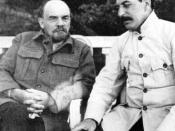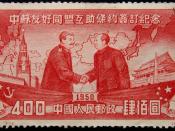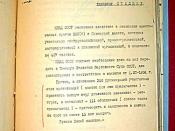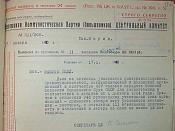Pelayo � PAGE �2�
Joshua Pelayo
Mr. Alvarez
Language Arts Nine Honors
20 December 2007
Joseph Stalin
Joseph Stalin was the dictator of Russia during World War Two who led by fear and helped develop the impoverished country into a world superpower. In Stalin, A Time For Judgement, biographers Jonathan Lewis and Phillip Whitehead portray Stalin as a cruel dictator who would use any means to achieve his end and obtain ultimate power.
Stalin's greatest influence was Lenin. Lenin was the leader of the revolution, which led to the beginning of the communist party. Stalin observed Lenin at all times and was one of his biggest supporters at every turn. After an attempt to spark a worldwide revolution failed, "Lenin was supported only by Stalin in seeing the need to get out of the [World War One] no matter whatâ¦" (Lewis and Whitehead 44). After Lenin died, Stalin started to build up the idea that Lenin was infallible and that he was the sole interpreter of Lenin's works.
It was also important to Stalin to preserve Lenin's body for it embodied the cult of Lenin.
After Lenin's death Stalin plotted to remove Leon Trotsky, the only man who was closer to Lenin, from power and become dictator of Russia. In league with two other contenders for dictatorship, Kamenev and Zinoviev, Stalin succeeded in getting rid of Trotsky. Then, with the alliance of Nikolai Bukharin, Stalin turned on his partners, who allied with Trotsky in order to remove Stalin from power, although the effort failed and they were forced to resign from the central committee of the Communist Party. Stalin turned on his new partner and made sure that he fell out of power. He was now the only man with any significant power in the central committee of the Communist Party. The World Book Encyclopedia states, "In December 1929, the party praised Stalin on his fiftieth birthday. He had become a dictator" (648c).
Stalin had come into power during a time of great political unrest. No significant and widely accepted government had yet been established, and the country's economy was swiftly diminishing. Stalin formed the first of the U.S.S.R.'s (United Soviet Socialist Republic) five-year plans. These plans were intended to develop the economy by eliminating private businesses and producing more industrial machinery and farm equipment, though clothing and household goods were neglected. After Stalin ended private farming and transferred control of farms, farm equipment, and livestock to the government, farmers destroyed half of the government's livestock and much of its produce. As a punishment, Stalin sent about a million families into exile. "The economy moved forward, but at the cost of millions of lives" (World Book Encyclopedia 648c).
Lewis and Whitehead portray Joseph Stalin as a savage leader who believed that anyone who opposed him opposed the great leader Lenin, which was considered the greatest of heresies. He would use any means necessary to achieve dictatorship, and once it was achieved he used his power to rebuild the economy at the cost of millions of human lives. Stalin was a ruthless leader to whom the end justifies the means, no matter what the cost.
Works Cited
Jonathan Lewis, Phillip Whitehead. Stalin, A Time For Judgement. New York: Pantheon Books, 1990: 41-59.
"Stalin, Joseph." The World Book Encyclopedia. 1984: 648c.
"Joseph Vissarionovich Stalin: Rise to Power." Info Please Daily Almanac. 2007. Pearson Education. http://www.infoplease.com/ce6/people/A0861297.html
Edvard Radzinsky. Stalin. New York: Doubleday, 1996: 322-325.





